
Senior writer Tina Hesman Saey is a geneticist-turned-science writer who covers all things microscopic and a few too big to be viewed under a microscope. She is an honors graduate of the University of Nebraska-Lincoln where she did research on tobacco plants and ethanol-producing bacteria. She spent a year as a Fulbright scholar at the Georg-August University in Göttingen, Germany, studying microbiology and traveling. Her work on how yeast turn on and off one gene earned her a Ph.D. in molecular genetics at Washington University in St. Louis. Tina then rounded out her degree collection with a master’s in science journalism from Boston University. She interned at the Dallas Morning News and Science News before returning to St. Louis to cover biotechnology, genetics and medical science for the St. Louis Post-Dispatch. After a seven year stint as a newspaper reporter, she returned to Science News. Her work has been honored by the National Academies of Sciences, Engineering and Medicine, the Endocrine Society, the Genetics Society of America and by journalism organizations.

Trustworthy journalism comes at a price.
Scientists and journalists share a core belief in questioning, observing and verifying to reach the truth. Science News reports on crucial research and discovery across science disciplines. We need your financial support to make it happen – every contribution makes a difference.
All Stories by Tina Hesman Saey
-
 Genetics
GeneticsAlmost all healthy people harbor patches of mutated cells
Even healthy tissues can build up mutations, some of which have been tied to cancer.
-
 Health & Medicine
Health & MedicineA fungus weaponized with a spider toxin can kill malaria mosquitoes
In controlled field experiments in Burkina Faso, a genetically engineered fungus reduced numbers of insecticide-resistant mosquitoes that can carry malaria.
-
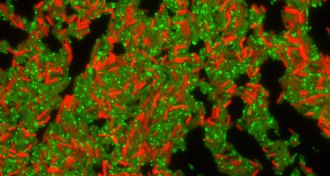 Life
LifeHow bacteria nearly killed by antibiotics can recover — and gain resistance
A pump protein can keep bacteria alive long enough for the microbes to develop antibiotic resistance.
-
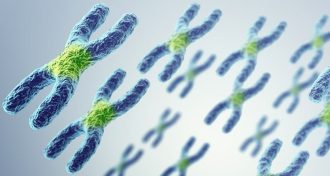 Genetics
GeneticsKey parts of a fruit fly’s genetic makeup have finally been decoded
Jumping genes may make it possible to divvy up chromosomes.
-
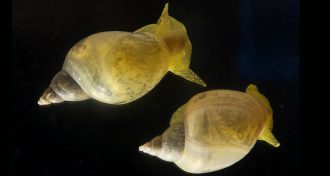 Genetics
GeneticsTweaking one gene with CRISPR switched the way a snail shell spirals
The first gene-edited snails confirm which gene is responsible for the direction of the shell’s spiral.
-
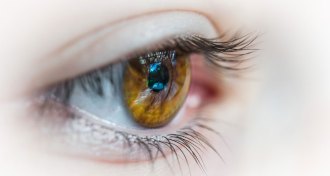 Health & Medicine
Health & Medicine50 years ago, scientists tried to transplant part of a human eye
In 1969, a doctor tried and failed to restore a 54-year-old man’s vision. Fifty years later, scientists are still struggling to make eye transplants work.
-
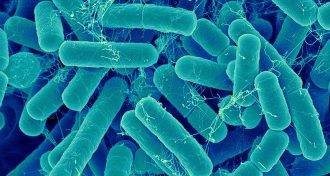 Life
LifeA gut bacteria transplant may not help you lose weight
A small study finds that transplanting gut microbes from a lean person into obese people didn’t lead to weight loss, as hoped.
-
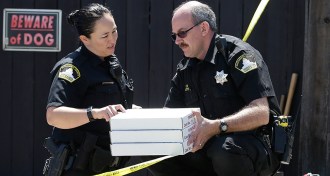 Science & Society
Science & SocietyHow we reported on the challenges of using ancestry tests to solve crimes
Here’s how we found out what happened when an arrest was made in the Golden State Killer case that was tied to genetic testing.
-
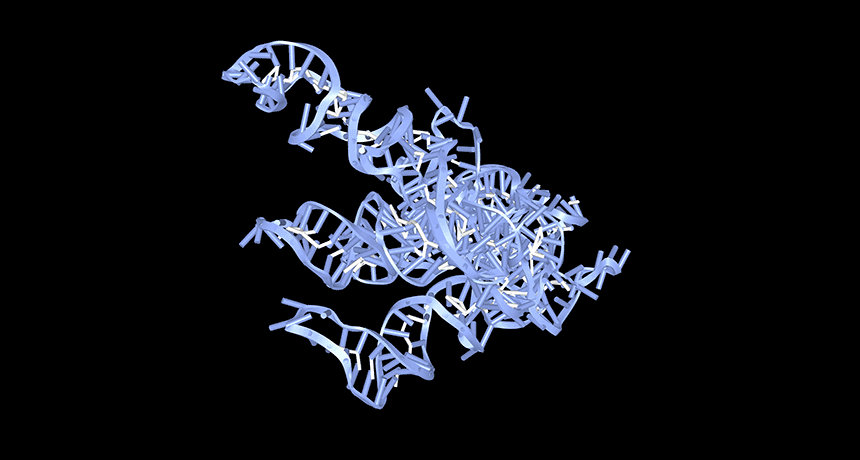 Genetics
GeneticsA lack of circular RNAs may trigger lupus
Researchers close in on how low levels of a kind of RNA may trigger lupus — offering hope for future treatments for the autoimmune disease.
-
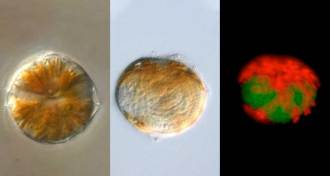 Genetics
GeneticsA marine parasite’s mitochondria lack DNA but still churn out energy
Missing mitochondrial DNA inside a parasitic marine microbe turned up inside the organism’s nucleus.
-
 Genetics
GeneticsA genetic scorecard could predict your risk of being obese
A genetic score predicts who is at risk of severe obesity, but experts say lifestyle matters more than genes.
-
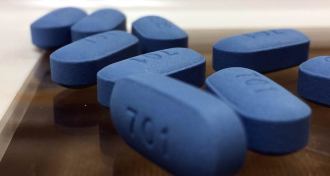 Genetics
GeneticsSome people may have genes that hamper a drug’s HIV protection
Newly discovered genetic variants could explain why an anti-HIV medication doesn’t protect everyone.